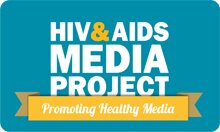Men who have sex with men (MSM)
HIV prevention for MSM
MSM can use male or female condoms during sex. However it is not advisable to use both at the same time as this will cause friction which can result in the condoms tearing or breaking.
It is best that either the 'top' insertive partner uses a male condom or the 'bottom' receptive partner uses a female condom.
MSM are also encouraged to use water-based lubricant during sex as this minimises the chances of the condom tearing or breaking. Using lubricant also decreases damage done to the lining of the rectum during anal sex, which can result in HIV exposure.

Men who have sex with men (MSM) includes but is not limited to gay men. This is because many MSM, whilst having sex with men, do not identify as homosexual.
This means that some MSM might identify as heterosexual and have sexual relationships with women but also have sex with other men covertly or 'on the side'. This might be for fear of stigmatisation and discrimination in a society which continues to be intolerant towards homosexuality and those who practice it.
MSM and Risk
Biologically, MSM face increased risk of HIV as the virus is easily passed on during unprotected anal sex. Unprotected anal sex carries a risk of HIV infection that is 18 times higher than vaginal sex and the receptive (bottom) partner is at even higher risk of HIV infection than the insertive (top) partner.
MSM are also more vulnerable to HIV because of social factors like discrimination and prejudice. Negative attitudes towards people who engage in same-sex behaviour, force MSM ‘into hiding.’ This makes them reluctant to seek out sexual healthcare which in turn means that thye are less likely to access HIV prevention and treatment.
This is why MSM are often described as ‘a hidden group’ in the epidemic. Treatment and prevention messaging tailored for gay men often does not reach all MSM or they may feel it does not apply to them.
 Organisations like Health4Men provide sexual healthcare services for all men who have sex with men (including gay- and straight-identifying men) and produce messaging for both groups.
Organisations like Health4Men provide sexual healthcare services for all men who have sex with men (including gay- and straight-identifying men) and produce messaging for both groups.






